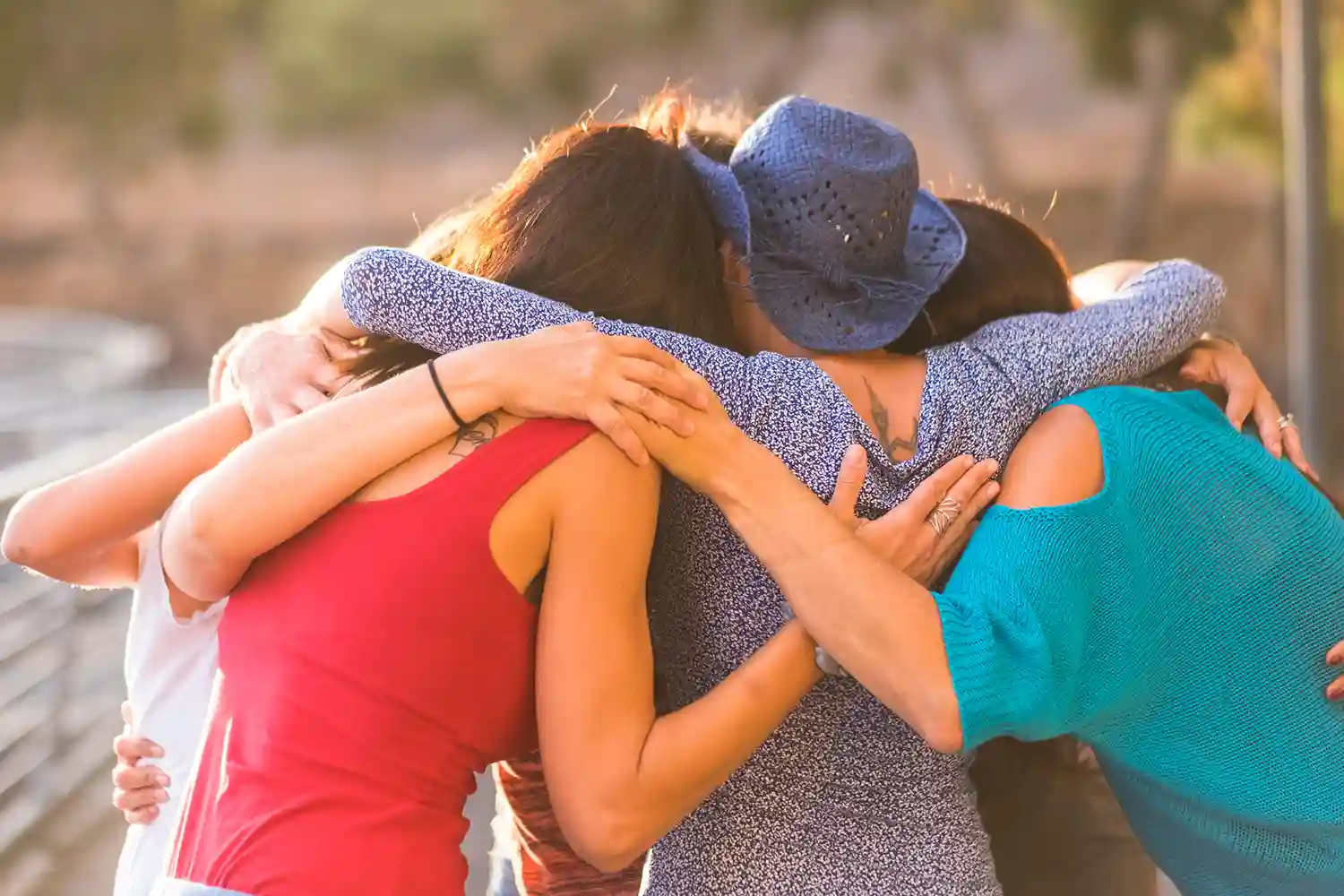The recovery journey for women can be challenging yet transformative. Guidance and support are crucial during this process to navigate the path towards healing. Retreats provide valuable spaces for empowerment, offering an inclusive and nurturing environment for women in recovery.
In this article, we will explore the women’s recovery journey and how retreats can catalyze personal growth. By examining the empowerment roadmap at these retreats, we can gain insights into the strategies and tools used to guide women towards recovery. From therapeutic activities to group discussions, these retreats provide a comprehensive approach to address the unique needs and experiences of women in recovery.
Understanding the importance of empowerment in the recovery journey, women can find strength, resilience, and a sense of community on their healing path.
Key Takeaways
- Societal expectations and cultural norms, gender-based discrimination, and external barriers can pose challenges to women on their recovery journey.
- Retreats provide a supportive and transformative environment for women’s recovery by offering a safe space for sharing experiences, guidance from professionals who understand their needs, and opportunities to build connections and foster a sense of belonging.
- Creating a supportive environment for women’s recovery involves having compassionate and non-judgmental staff, peer support for mutual understanding and validation, trauma-informed care to address past traumas, and holistic approaches for comprehensive healing.
- Empowerment strategies for women in recovery include setting realistic goals, providing education on self-care and healthy coping mechanisms, creating a supportive and inclusive community, and recognizing their unique strengths and inner power.
Understanding the Challenges of Women’s Recovery Journey
The challenges faced by women on their recovery journey can be complex and multifaceted. It is crucial to understand and acknowledge these challenges in order to provide the necessary support and guidance.
Women often face unique obstacles such as societal expectations, cultural norms, and gender-based discrimination. These external factors can create additional barriers to their recovery process.
Additionally, women may also struggle with internal challenges such as low self-esteem, guilt, and trauma. It is important to create a safe and inclusive environment where women feel supported and understood.
The Importance of Retreats in Women’s Recovery Path
Addressing the unique challenges faced by women on their recovery journey, retreats play a vital role in providing a supportive and transformative environment. These retreats offer a safe space where women can come together, share their experiences, and receive guidance from professionals who understand their specific needs.
In the supportive atmosphere of a retreat, women can explore their emotions and confront the underlying issues that contribute to their addiction. They can build connections with other women who have walked a similar path, fostering a sense of belonging and camaraderie.
Retreats also provide a break from the stresses of daily life, allowing women to focus solely on their recovery. In this nurturing environment, women can gain valuable insights, learn effective coping strategies, and develop the skills necessary for long-term sobriety.
The importance of retreats in women’s recovery path cannot be overstated; they offer a powerful opportunity for growth, healing, and empowerment.

Creating a Supportive Environment for Women’s Recovery
Creating a supportive environment is essential for facilitating women’s recovery on their journey to empowerment and healing. When women feel supported, understood, and accepted, they are more likely to open up and engage in the recovery process. Here are four key elements in creating a supportive environment for women’s recovery:
- Compassionate and non-judgmental staff: Staff members who are empathetic, understanding, and non-judgmental create a safe space where women can feel comfortable sharing their experiences without fear of criticism or shame.
- Peer support: Encouraging women to connect with others who have similar experiences can provide a sense of belonging and validation. Peer support groups foster mutual understanding, empathy, and shared wisdom.
- Trauma-informed care: Creating an environment that acknowledges and addresses the impact of trauma is crucial. Trauma-informed care approaches ensure that women feel safe and respected, allowing them to heal from past traumas.
- Holistic approaches: Providing a range of therapeutic modalities, such as individual counseling, group therapy, art therapy, and mindfulness practices, allows women to explore different avenues of healing and find what resonates with them.
Developing Empowerment Strategies for Women in Recovery
Developing effective empowerment strategies is crucial for women in recovery to reclaim their power and thrive in their healing journey. Empowerment is about providing women with the tools, support, and resources they need to regain control over their lives and make positive changes. It involves helping them build self-confidence, assertiveness, and resilience so they can navigate the challenges of recovery with strength and determination.
One strategy is to encourage women to set realistic goals and celebrate their achievements along the way. By breaking down their recovery journey into smaller, manageable steps, they can feel a sense of progress and accomplishment. It is also important to provide education and information on self-care, healthy coping mechanisms, and relapse prevention strategies.
Another empowering strategy is to create a supportive and inclusive community where women can connect with others who share similar experiences. This sense of belonging and understanding can boost their confidence and motivation, as they realize they are not alone in their struggles. Peer support groups, mentorship programs, and retreats can all play a vital role in helping women in recovery develop a strong support network.
Ultimately, developing empowerment strategies for women in recovery is about recognizing their unique strengths and helping them harness their inner power. By providing them with the tools and support they need, we can empower them to overcome challenges, embrace their potential, and lead fulfilling lives in recovery.
Nurturing Self-Care and Mindfulness Practices in Women’s Recovery
Implementing self-care and mindfulness practices is essential for fostering women’s recovery and promoting overall well-being. Women in recovery often face unique challenges and need to prioritize their own self-care to maintain their progress and prevent relapse. Here are four important practices that can nurture self-care and mindfulness in women’s recovery:
- Daily self-reflection: Encourage women to take time each day to reflect on their emotions, thoughts, and experiences. This practice can help them gain insight into their triggers and develop healthier coping strategies.
- Mindful breathing exercises: Teach women how to engage in deep breathing exercises to calm their minds and reduce stress. This simple practice can be done anywhere and can help them stay grounded in the present moment.
- Setting boundaries: Women in recovery often struggle with setting and maintaining boundaries. Encourage them to assertively communicate their needs and limitations, empowering them to prioritize their well-being.
- Engaging in self-compassion: Remind women to be kind and forgiving towards themselves. They should acknowledge their progress, celebrate their successes, and practice self-compassion during setbacks or challenges.
Frequently Asked Questions
How Long Does the Recovery Journey for Women Typically Take?
The recovery journey for women can vary in length depending on various factors such as the individual’s unique circumstances, the type and severity of the addiction, and the level of support they receive.
What Are Some Common Challenges That Women Face During Their Recovery Journey?
During their recovery journey, women may face common challenges such as self-doubt, relapse triggers, and societal stigma. It is important to provide support, education, and resources to empower women in overcoming these obstacles and achieving lasting recovery.
Are Retreats the Only Option for Women Seeking Recovery?
Retreats are not the only option for women seeking recovery. While retreats can provide a supportive and empowering environment, there are other avenues such as therapy, support groups, and outpatient programs that can also aid in a woman’s recovery journey.
How Can a Supportive Environment Contribute to a Woman’s Recovery?
A supportive environment can greatly contribute to a woman’s recovery by providing a safe space for healing, fostering connection and community, offering guidance and resources, and empowering her to reclaim her autonomy and strength on her journey to recovery.
What Are Some Specific Empowerment Strategies That Can Help Women in Their Recovery Journey?
Some specific empowerment strategies that can help women in their recovery journey include building a strong support network, setting achievable goals, practicing self-care, developing healthy coping mechanisms, and engaging in therapy or counseling.
Conclusion
In conclusion, women’s recovery journeys can be complex and transformative experiences, and retreats serve as valuable spaces for empowerment and support.
By creating inclusive and nurturing environments, these retreats offer a roadmap for women to navigate their recovery paths. Through therapeutic activities, group discussions, and empowerment strategies, women in recovery can find strength, resilience, and a sense of community.
Nurturing self-care and mindfulness practices further contribute to their healing process. These retreats play a crucial role in guiding women towards personal growth and empowerment.
You may also like to read:
Arcade Machines Boost User Experience for Women Can Slow It Down
